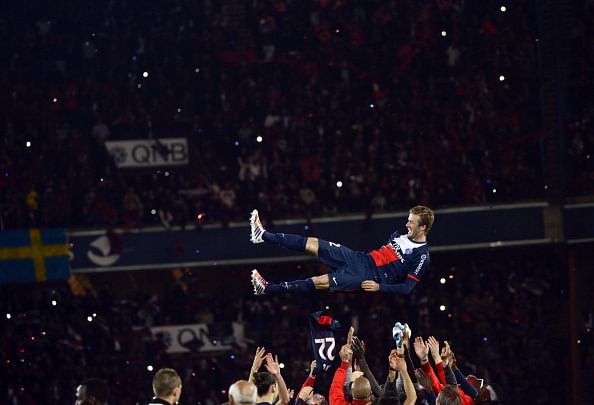
David Beckham: Not bad for a pretty face
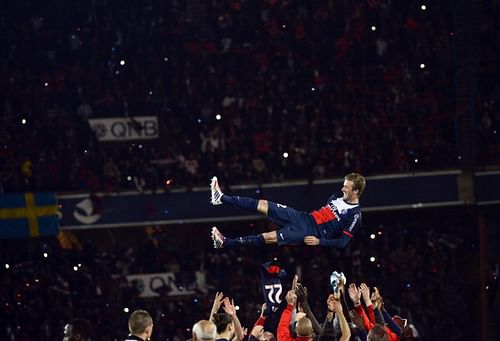
From the relative obscurity of Preston North End to a farewell at the Parc des Princes, David Beckham has ensured that his name will remain in the annals of the footballing world for some time to come. Yet, in the eulogies that have been written for the Englishman, one finds a hostility that would not be afforded to many others who have claimed similar acclaim and success in the sport.
That antagonism, however, will be nothing that Beckham has not experienced in the past.
After all, the midfielder, ever-present in the back pages and the tabloids after graduating from that class of ’92, had to quickly grow a resilience, in his early years, to the negativity that was to come his way as he was thrust into the limelight. From the highs of his free kick against Columbia in the 1998 World Cup, his first major tournament, came the depths of the red card against Argentina, and all that followed with it. Beckham was pushed to the brink, pilloried by the media and burnt in effigies at the nation’s capital.
Yet, it was his doggedness and obstinance that made sure he kept his head above the water instead of hiding in the shadows, Beckham ending the following season with vital contributions in United’s treble, and a runners-up in the FIFA World Player of the Year awards, behind Brazil legend Rivaldo.
Another year on from that event, Beckham was made England captain, and soon afterwards was the darling of the nation once again, hitting that free kick to guide his side to the 2002 World Cup in Japan and South Korea, and along with it earning himself some sweet redemption.
When the flying boot hit Becks and Sir Alex Ferguson fell out of love with his golden boy, the player’s critics all sided with the Manchester United manager, understanding the aggrievances he had with Beckham’s apparent urge for the limelight. After all, how much more could a conservative Scot take from a player who had a penchant for the extravagant, be it his hairstyles or his sarongs.
When transferred to Madrid in 2003, the common perception was that the Spanish giants had done great business to tie Beckham to a contract, not because he would make a team full of galacticos even stronger, but because he would help sell shirts and expand the La Liga outfit’s reach into avenues yet untouched.
It was as much the fault of the Madrid hierarchy for the team’s slide in the coming years as it was the players’, as names took precedence over requirement and merit in their efforts to build a dream team. As a result, Beckham’s first major trophy at the Bernabeu came only in the 2006-07 season, after the likes of Ronaldo, Zidane and Figo had all departed.
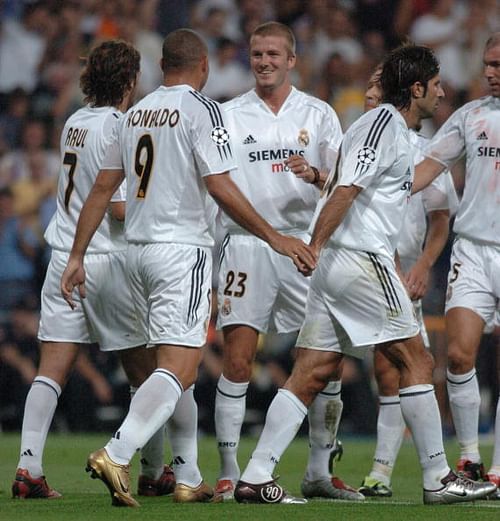
Earlier in the season had then-manager Fabio Capello prophesied that Beckham would never play a game again for Madrid, only to backtrack on those comments and see the midfielder play a pivotal role in Los Blancos’ late-season charge. According to Sid Lowe, Beckham left the Bernabeu having won over the locals, with very few foreign arrivals, both past and future, proving to be as popular and respected as the man they had thrown brickbats at in the past.
It was not just the fans that were impressed, as Beckham’s teammates lauded him for his commitment to the cause, and his willingness to put in a shift. In the words of Figo, “(Beckham was) a phenomenon … the image he has is totally different to what he is really like as a player and a person.”
As many times as he was put down, he jumped right back up, with Ferguson’s lines about Beckham following the player’s retirement possibly the most accurate to sum it up:
“You talk about longevity and in many ways reinventing himself, it has been absolutely incredible. When he went to America there wasn’t a person in this place who really thought he could have a career.
“Yet he went on and still played for his country, he played for AC Milan in European ties and he played for PSG in European ties, and I don’t think anyone could have imagined that.”
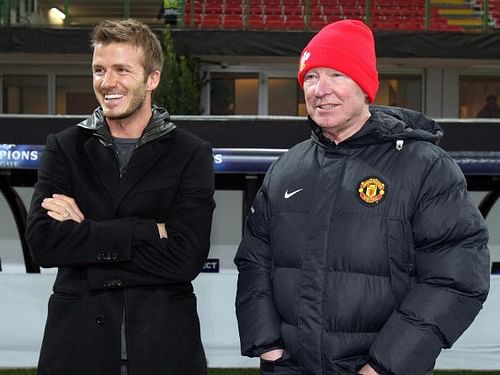
While he played a major role in London winning the right to host the 2012 Olympics, arguably his biggest achievement on a social front was his tackling of a still prevalent homophobic bias in England, and indeed the world over. It was easy to mete out criticism to Beckham right throughout his career, as journalists and fans, apparently riding the appallingly heavy undercurrent of homophobia that exists, seemed uncomfortable with the country’s biggest footballing star taking an interest in his clothes.
For a sport known to be both bruising and combative, the idea of having a player conscious of his good looks, and embracing it, was a thought alien to most.
Famous, therefore, for having a massive gay fan-base, Beckham didn’t shy away like many would have, instead openly conversing with gay magazines and showing no qualms in admitting his metrosexuality.
During an interview in 2007, Beckham said:
“Maybe it’s things like (the fact) I like to look after myself, I like to look smart and presentable most of the time,” he said.
“I always liked to look good, even when I was a little kid. I was given the option when I was a page boy once of either wearing a suit or wearing knickerbockers and long socks and ballet shoes — and I chose the ballet shoes and knickerbockers.”
In a world that despite its claim to be progressive still has a stigma towards homosexuals, Beckham opened a door for change, in hope that there will be a time where many others would be ready to make their preferences without trepidation.
On the football front, many suggest that Beckham could have had it all, had he decided to stay back in England and Manchester. Henry Winter says in his piece for the Telegraph: “Beckham must look at Paul Scholes and Ryan Giggs and wonder what his legacy might now be if he had stayed onside with Ferguson and stayed at Old Trafford.”
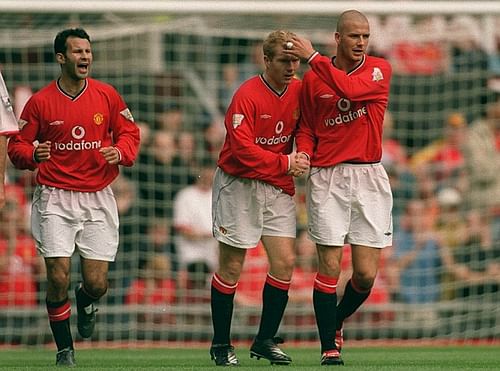
However, many fail to see the legacy that he has left behind. He marched to the beat of his own drum, and proved successful at almost every step. What he lost in technical ability, he made up with sheer perseverance. Those arcing freekicks and crosses, copied by millions across the world, were as much the results of his prodigious natural ability as they was his sheer dedication at the Cliff after United’s training sessions.
He played for three of Europe’s most hallowed clubs, along with a fourth which is expected to make a splash among Europe’s big wigs in the coming years. Against common knowledge and suggestion, he transcended barriers and won over the Americans, putting ‘soccer’ on the map in the world’s most powerful country. Hailing from a country which is used to having its players choose the luxury of the Premier League instead of venturing outside its borders, Beckham showed both a desire and a fortitude to try his hand in other leagues, and despite his deficiencies, came up trumps.
He ended as England’s most capped outfield player, as well as the only Englishman to win domestic titles at four different countries. And just to make sure he proved his worth as an individual, added two FIFA World Player of the Year runner-up awards to boot, more than what Giggs and Scholes could manage together. Not bad for just a pretty face, then.